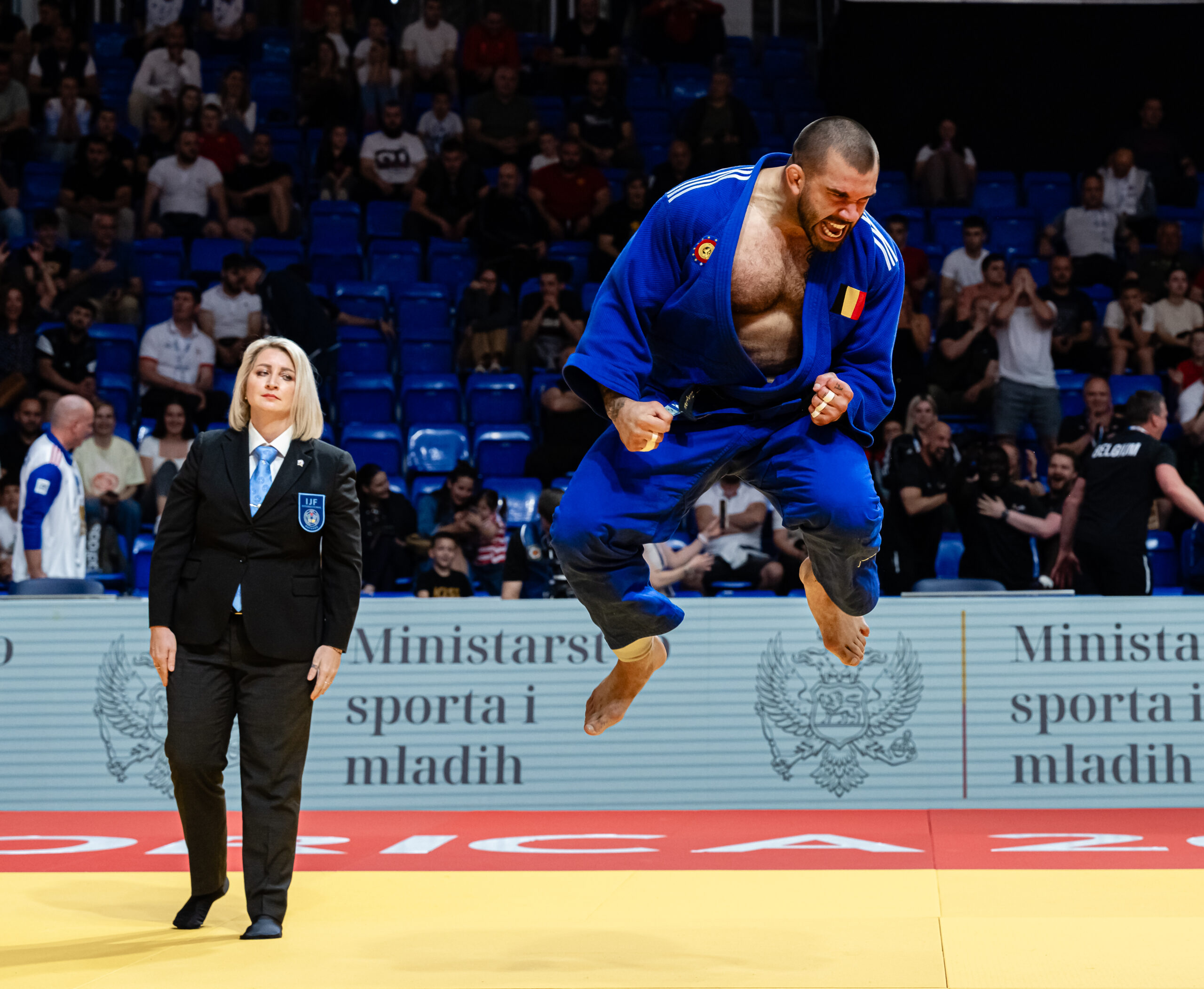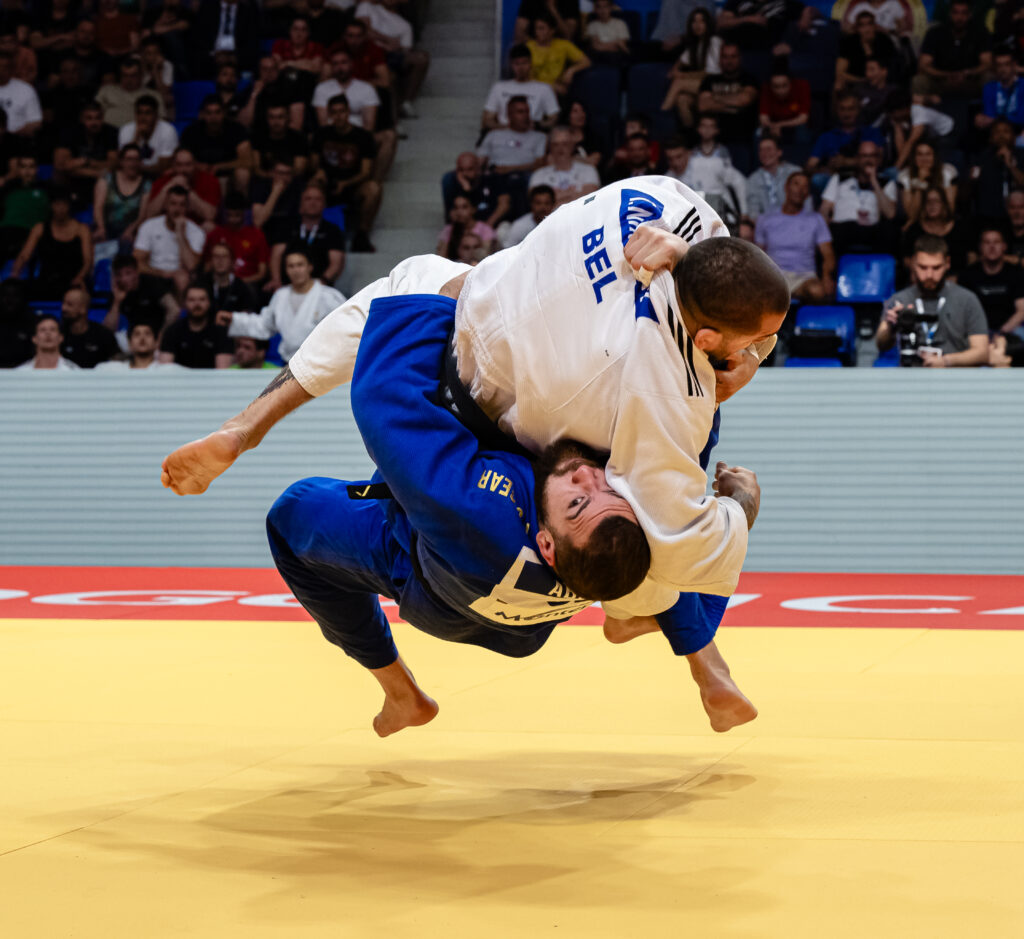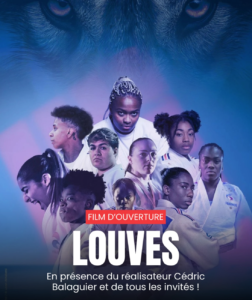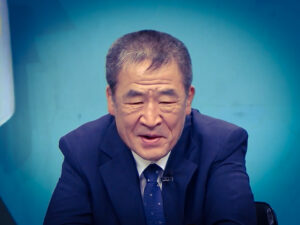Toma Nikiforov was born on 25 January 1993 in Schaerbeek, Belgium. Initially a robust sixteen-year-old cadet, we spent three days practicing uchi komi and randori together in May 2009 at the Maison du Judo in Lyon during the international training camp that followed the Tournoi de France. At the time, this was an essential stage in the junior circuit, and that year it saw the participation of future big names such as Laura Vargas-Koch, Clarisse Agbégnénou, Audrey Tcheuméo, Akari Ogata or Loïc Pietri… A year later, while visiting the call room at the same French tournament with my eldest son, a hooded U100kg Belgian fighter grabbed us both by the sleeve. “Do you remember me? It’s Toma; we trained together last year and your son is also called Thomas, right?” With his dark gaze, stubble and predatory smile, the colossus certainly has a good memory and isn’t one for beating around the bush. He was about to climb onto the first of the three podiums that he would reach in this tournament, which he went on to win without breaking a sweat in the next two editions. He even displayed this legendary confidence just before facing Japan’s Takumi Asanuma in the final of the 2011 tournament, saying, ‘I don’t know this guy, but I’m going to destroy him.’ He backed up his words with action, scoring two waza-ari and letting out a roar that would reverberate later in many occasions around the globe.
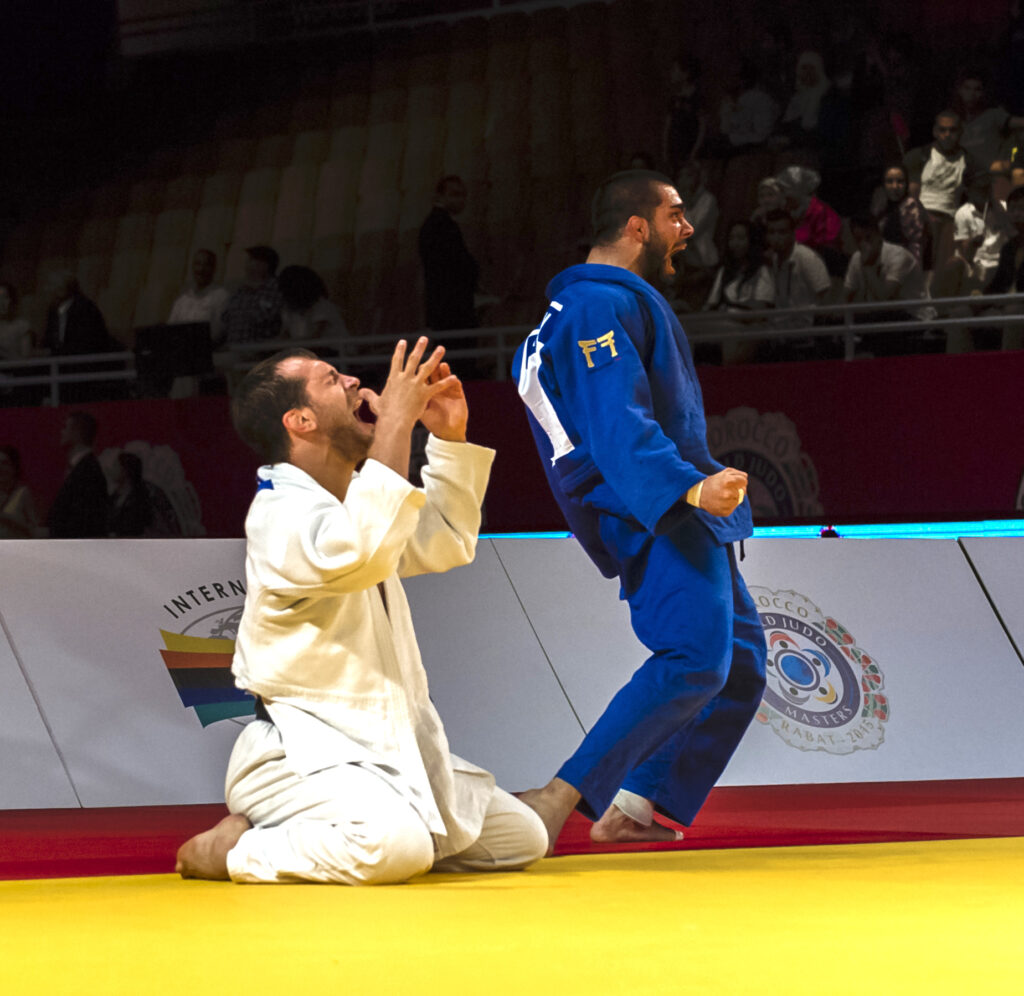
From the World Championships in Rio in August 2013 to the Olympic Games in the same city in August 2016, Toma Nikiforov was one of eleven ‘characters’ featured in the eighteen-episode series World Judo Academy, which I had the privilege of hosting for the French bimonthly magazine L’Esprit du judo. He rubbed shoulders with Amandine Buchard of France, Hedvig Karakas of Hungary, Yarden Gerbi of Israel, Kayla Harrison of the United States, Idalys Ortiz of Cuba, Yakub Shamilov of Russia, Gideon « Jacques » Van Zyl of South Africa, Antoine Valois-Fortier of Canada, Tiago Camilo of Brazil and Islam El Shehaby of Egypt – a perfect example of the symmetry and balance of the aspirations, contingencies and realities of a generation with multiple identities. These three years also saw the gradual rise of the Judo Royal Crossing Club child on the international senior circuit. The general public also discovered his intense and wholehearted personality, affectionately nicknamed ‘Les choux de Bruxelles’ (Brussels sprouts) in reference to his ‘kata-gurumist’ cauliflowers ears, or ‘Mister Kalashnikiforov’ given his celebrations, which were all about interiority and restraint (no).
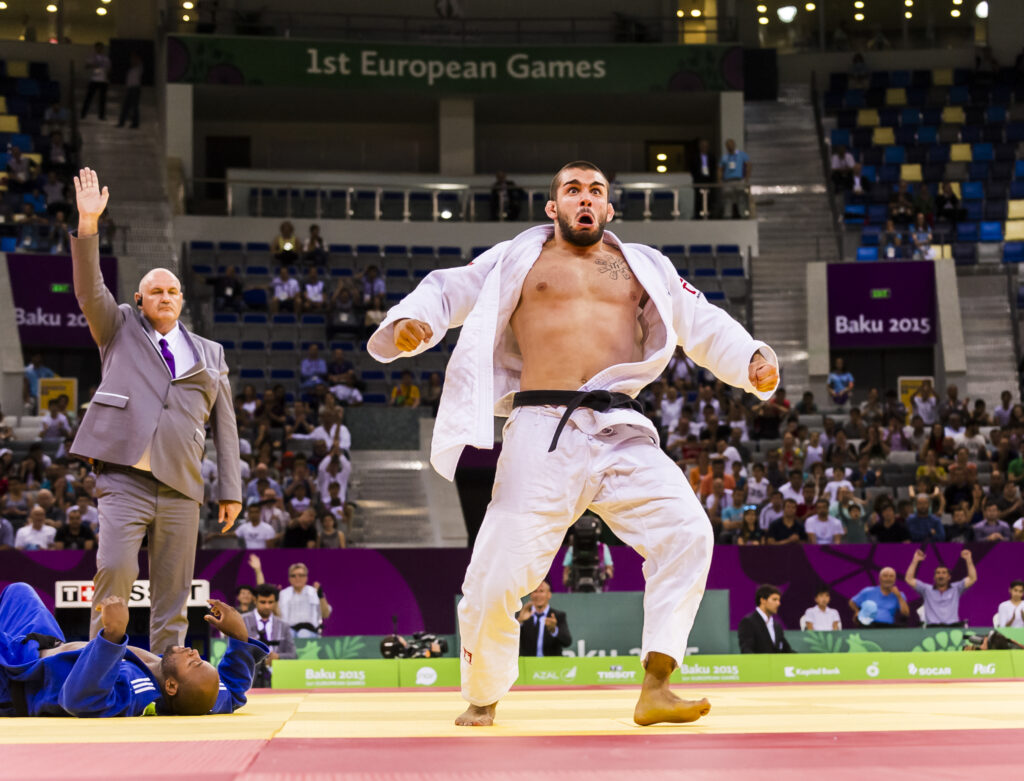
And then the seasons passed, punctuated by warm reunions: night-time trips between Brussels and Namur; uchi-komi and randori; and moonlit evenings spent together in Sochi, Castelldefels, Mittersill and other places. On 19 June 2025, the day he was due to compete in his eighth World Championships in Budapest, one of the most successful Belgian male judokas of recent decades officially announced his retirement. This decision came as a shock a few weeks earlier, during this interview. It was a long conversation that began a year earlier, ahead of the 2024 Paris Olympics, during which he expressed his frustration articulately – and this may have helped change the refereeing rules, who knows? A kind of testament of a fighter who loves nothing more than entering the arena to the sound of AC/DC’s ‘Thunderstruck’. His body is covered in tattoos, his hands are like guillotines when he launches into a standing-to-ground combination, and he is eager to do battle as soon as he sets foot on the tarmac of the competition of the week. A man who has always been committed to winning ‘like a man’, as demonstrated by his infectious joy during the final mixed team event at the European Championships in Podgorica exactly two months ago. He was sixteen in 2009 and is now thirty-two in 2025. Half a lifetime has passed. This solid companionship was well worth an interview in ‘good old days’ mode, but not only that. – JudoAKD#037.
An French version of this interview is available here.
Voir cette publication sur Instagram
Une publication partagée par EUROPEAN JUDO UNION (@europeanjudo)
Podgorica, Montenegro, 27 April 2025. In the repechage of the European Mixed Team Championships, Toma Nikiforov defeats France’s O100kg Tieman Diaby, finally bringing the fourth and final point needed for his ‘little’ reunified Belgium to eliminate its intimidating neighbour France, the two-time reigning Olympic champion. A source of an immense collective joy and pride. ©EJU/JudoAKD
This long interview begins in spring 2024. Your third Olympics are coming up. What has changed the most on the international tour since you first started out in 2009–10?
What has changed the most? The mentality, for one thing. I’ve been out of the loop for about fifteen years, and the changes I’ve personally observed seem quite negative to me – I’m talking about the human side of things. There are a lot of people who are nice only when the cameras are on them, who behave differently depending on whether there’s an audience or not, and who behave yet another way when they’re face to face with someone. I have a hard time with that.
And what about the rules, refereeing, dominant nations…
The idea behind the rules seems to be to protect athletes better, but in reality it’s a bit different. In any case, it has no impact on the hierarchy of nations. The big nations remain the big nations, and the small nations remain the small nations [smile]… For me, the big change is the calendar. The programme is extremely busy nowadays. There are dozens of Grand Slams and World championships every year, including in years when there are Olympics, as well as the Masters and European Championships. There was even a season with two European Championships [at the end of the pandemic, with the Championships in Prague in November 2020 and then in Lisbon in April 2021, ed. note]! In 2024, for example, the European Championships, the World Championships and the Olympic Games are taking place in less than three months. It’s completely inhuman! People think, ‘Well, we have these three competitions in three months; it’s no big deal…’ But you also have to train in between. So we’re never at home; we’re constantly at training camps. At the training camps, there are hundreds of athletes. That’s great in itself, but we have to divide into three groups for randoris, and even then it’s borderline, so there’s a high risk of injury. You’re basically not allowed to take a break because it’s always a race for points, rankings, etc. I think the programme is much busier than it was before. I also think that only eighteen athletes per category qualifying directly for the Games is a bit too few. In some categories, even the eighteenth athlete can make it to the final, so it’s tough!
You’re one of those people who has to constantly manage their weight. How much weight have you gained outside of competition?
I’ve definitely been managing my weight for a long time. It’s something that evolves with age. I don’t follow the same diet now as I did when I was twenty or twenty-five. Outside of competition, I’ve often gained the most weight after the Games, reaching around 115 kilos. That’s really my maximum because during those phases, I don’t even step on the scale anymore! I don’t think about what I eat. I really go all in and try to enjoy it 100%. I’m a bon vivant and I eat a lot because I love it.
What has been your worst weight loss since you started?
Mine was at the Paris Grand Slam in 2022, the year I won. On the morning of the weigh-in, I was four kilos overweight, which is too much. That’s not my usual routine and it’s the only time I’ve ever had to lose that much weight in one day. I did a workout in the morning and then another one an hour and a half before the weigh-in. Strangely enough, this affected my performance in the competition. I wasn’t great in the first two fights, but then I picked up steam and won.
What about the weight loss you managed best?
Most of the time, I make my weight correctly. Yes, you’re not always in top form because that’s judo. You can train like crazy. You can be injury-free and think you’re in good shape, but then you step onto the mat and encounter a slight problem. Maybe your legs feel heavy, or maybe you’re not mentally ready. Or maybe your opponent is blocking you from all angles. You feel like you’re not well. At every competition, there’s an element of surprise, which makes things quite difficult. However, if you’ve put in the work beforehand, the chances of you not performing at your best are quite low. But it’s always a possibility.
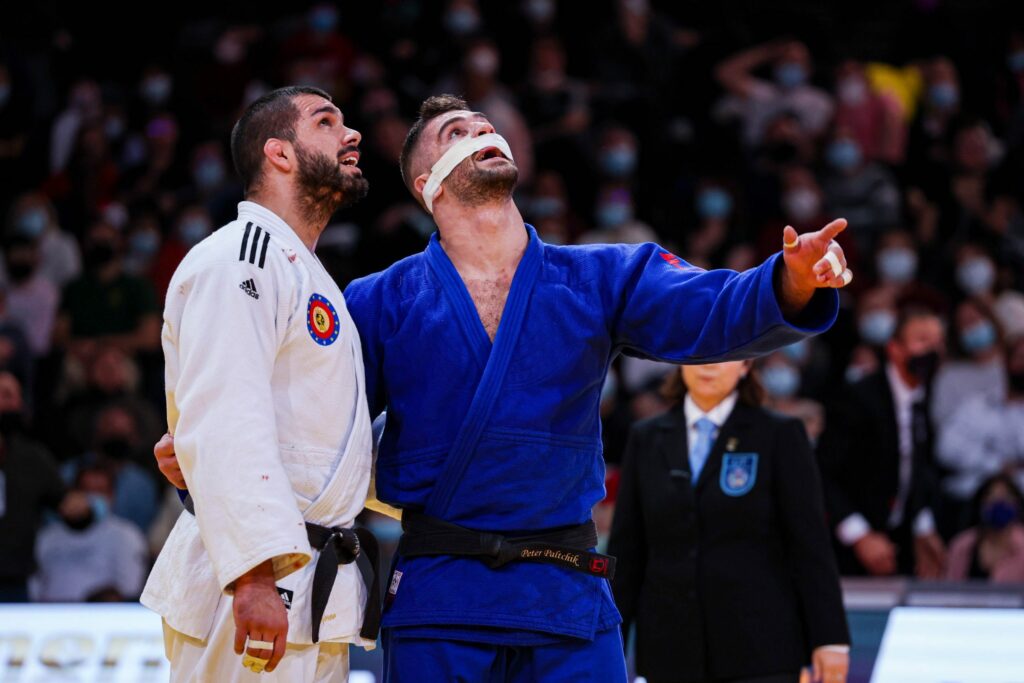
As of spring 2024, you have not reached the podium for a long time. It has lasted since your victory at the Paris Grand Slam in February 2022. Is this the longest dry spell of your career?
Indeed, it is by far the longest period without a podium finish in my career. There have been a lot of fifth places. I hate to say it, but refereeing has a huge impact on my performance. The decisions are not always correct. At the Jerusalem Masters at the end of 2022, for example, I should undoubtedly have been on the podium. Other than the fact that the competition in our category is fierce, I don’t really have an explanation. There are lots of young people who are very strong. There are also older athletes from my generation and even some older ones, such as the Serbian Kukolj, who continue to perform well. There’s quite a lot of competition in the U100kg category, with Russians like Kanikovskiy and Adamian who are a bit out of the ordinary and quite young.
Damiano Martinuzzi stopped being your coach in August 2023 when he left for PSG Judo, and the Dutchman Mark van der Ham took over. How did you experience this change?
It was a decision we discussed together. I was fine with Mark replacing Damiano because change can bring positive things. Unfortunately, we are less in tune with Mark than we were with Damiano, but that’s the way it is. Damiano has known me for a long time and knows me inside out. He liked to surround himself with professionals. He was attentive and always eager to learn something new. Things are a little different today in that respect, but that’s life.
Who else plays an important role in your preparation?
The fitness coach. We are in constant contact, just as we are with the medical staff. For me, that’s one of the most important things, especially towards the end of my career. When you’re over 30, your body reacts and recovers differently — it’s a fact. All those annoying things that you think will go away on their own when you’re younger don’t go away so easily when you approach your thirties. This is why there’s a new focus on stretching, pre-training exercises, post-training exercises and exercises when you’re supposed to be resting. As you get older, you have to do lots of seemingly annoying little things. And it’s better to do them [smiles].
You barely qualify at the rankings for the Paris Olympics, right? The general public sometimes fails to appreciate how nervous this race for qualification makes you in the final stretch. Did you have any doubts?
The rankings are important for us athletes, too. Even if you’re happy with your position, it only takes two or three tournaments for newcomers to arrive and earn a lot of points, causing you to quickly lose five or six places. So you have to compete all the time. However, competing constantly means you’re never really in top form or well rested, which increases the risk of injury. If you’re doing well in the rankings, you can afford to be selective about which tournaments you enter, but you’re still obliged to show up overall. It used to be different. You could make it to the podium at the World Championships or the Grand Slam, and then disappear for a while. This meant that people couldn’t study you. Nowadays, though, you have to compete constantly to stay in the top eight or maintain a comfortable position in the rankings to qualify for the Olympics. It’s exhausting.
Do you think this shorter Olympic cycle is more stressful than the previous one, which lasted five years?
The fact that it’s now three years hasn’t made any difference. I didn’t feel any pressure about it. I was confident that I would qualify. Whether it was close or comfortable didn’t really matter to me. I’ll tell you this: if I don’t qualify for the Olympics, it’s because I’m not good enough, period. For me, that would mean there’s no point in continuing. I know that the top eighteen qualify, and we could all potentially be on the podium. The draw plays a big part in that.
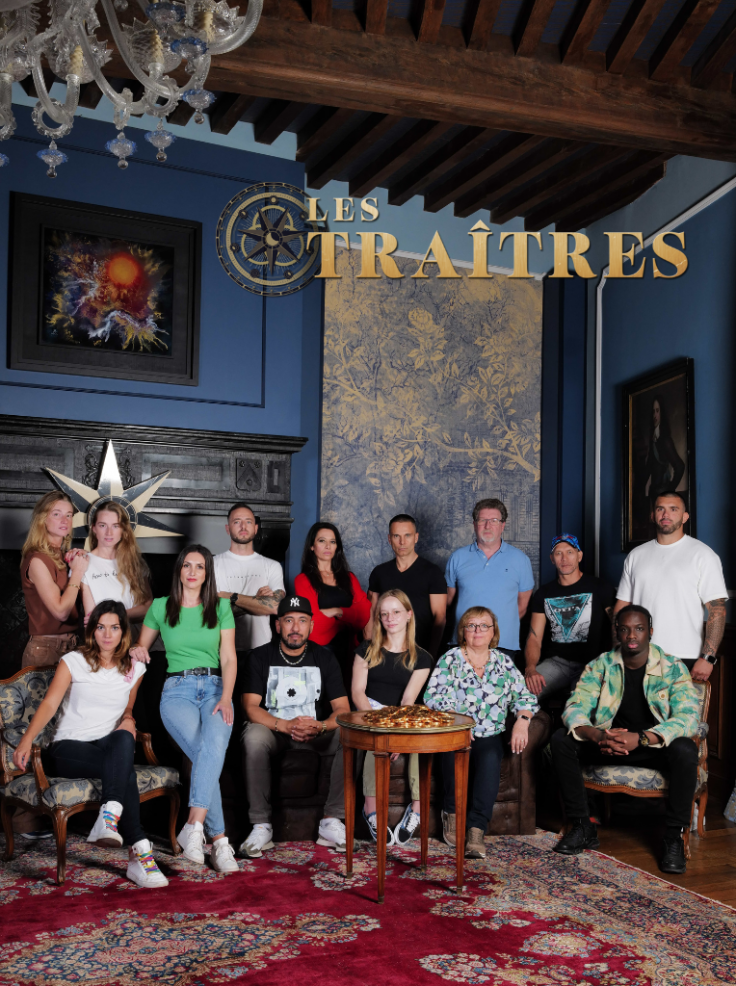
Can you tell us about the TV game show you recently took part in in Belgium?
Yes, it’s called Les Traîtres [The Traitors]. It’s broadcast on RTL TVI and features people who also stream on Twitch and other platforms. It’s basically a Werewolf game in reality TV mode. There are fourteen of us — all more or less public figures — each with a role to play. On the first day, two or three traitors are designated; I can’t remember exactly how many. The others don’t know this; only the traitors know. Those who are not traitors have to find out who the traitors are during the games and throughout the day. Every evening, there is a vote. The person with the most votes is eliminated. If it’s a traitor, that’s great. But if it’s someone else, a loyalist, then that’s not good. If there are one or more traitors left at the end of the week, the traitors win. If there are no traitors left, the loyalists win.
How did it go for you?
Two days before the final, one of the candidates found that she was the only traitor left and recruited me to her team without the others seeing. If I accepted, I would become a traitor too. If I refused, I would be eliminated from the game. However, I had formed quite a few bonds with some of the other participants. So, for two days, I played the role of the traitor, eliminating her on the last day. None of the others suspected me. As a result, I was the only traitor left and won the twenty thousand euros promised to the winner [he smiles]!
Was your judo training interrupted by filming?
If I recall correctly, filming took place in September 2023, with the programme being broadcast in spring 2024. It was the year before the Games, but far enough away that it didn’t impact my judo too much. In fact, the programme almost wasn’t broadcast because one of the contestants got into trouble with the law for incidents that happened before filming. There was also some tension between the participants during filming, but things settled down after a while. Ultimately, it was a great experience.
Was the programme successful?
To be honest, I hardly ever watch TV. However, I know that everyone in the judo world watched it and found it really interesting. Everyone said that I was a jackal, partly because the programme is called Les Traîtres [The Traitors], but also because of the way I played the game – I couldn’t have done better [helaughs]! I don’t like to blow my own trumpet, but when I saw it on TV, I knew there was no way I could lose! I even received messages from French people who had watched that season and the two previous ones, telling me that I was the best participant of all time [he laughs]!
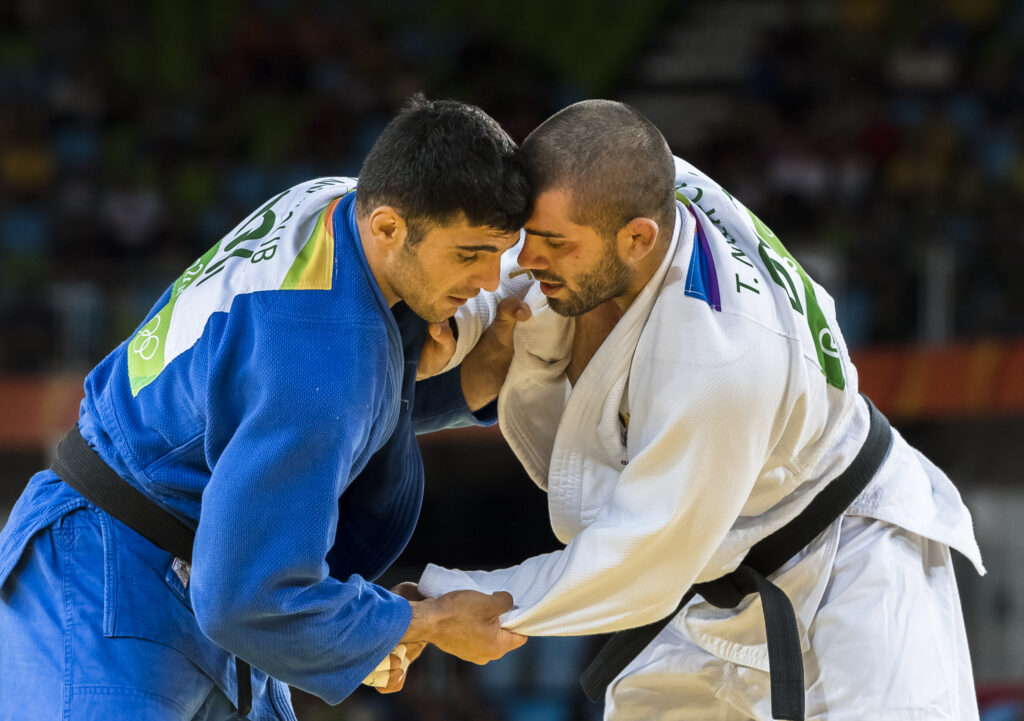
It’s been almost a year – and numerous WhatsApp exchanges – since we started this interview. We left you after the Paris Olympics with your thoughts on refereeing. You later told me that you were asked a lot about it, and that you didn’t want to be held prisoner by what you had said. Is that right?
That’s right.
Did you decide to change weight categories when you returned from your post-Olympic holidays?
Actually, I had already competed in the O100kg category several times in team competitions in Belgium, France and Bulgaria. I saw that it was going well.
Were you throwing people?
Yes, I was, and for a long time the average weight in the O100kg category was around 170 kg. But nowadays, there are more and more athletic guys who weigh 135 or 140 kg, and I can still handle that. Anything above that gets really heavy.
So, what is it like in the O100kg category when you come from the category below?
Once I had made my decision, the biggest challenge I faced was convincing people not to underestimate the impact of fighting in the O100kg category. People say things like, ‘Yeah, they’re big slugs; you move a little and they fall and roll…’ Actually, that’s not it at all. Of course, there are different profiles, but I’m talking about the best of the best. They’re not fat slobs who get tired, give up and roll around. These guys are monsters. I really feel like I’m fighting against Twingos; it’s crazy! They’re heavy and powerful. If your leg isn’t positioned correctly and they develop speed and power, they’ll break it into a thousand pieces if you don’t move it yourself. I had to be really careful about that, because I didn’t want to get seriously injured. [He shows his recently operated finger]: this injury would never have happened if I were in the U100kg category. Never in a million years.
How did you do that?
It was against the Dutch guy at the European Team Championships in Podgorica. It’s that power thing I was telling you about earlier. We’re sleeve-to-sleeve; I throw sode, but I don’t feel anything. Then, when I tried to regain my guard on the second hajime, I felt that two of my fingers were still stretched out. I thought they were dislocated, so I started pulling on them. Then I started to feel pain. When I got off the mat, the doctor told me that I had torn my tendons, so he strapped my fingers up. I managed with that against the Frenchman and then the German.
How long are you out for?
At least six weeks.
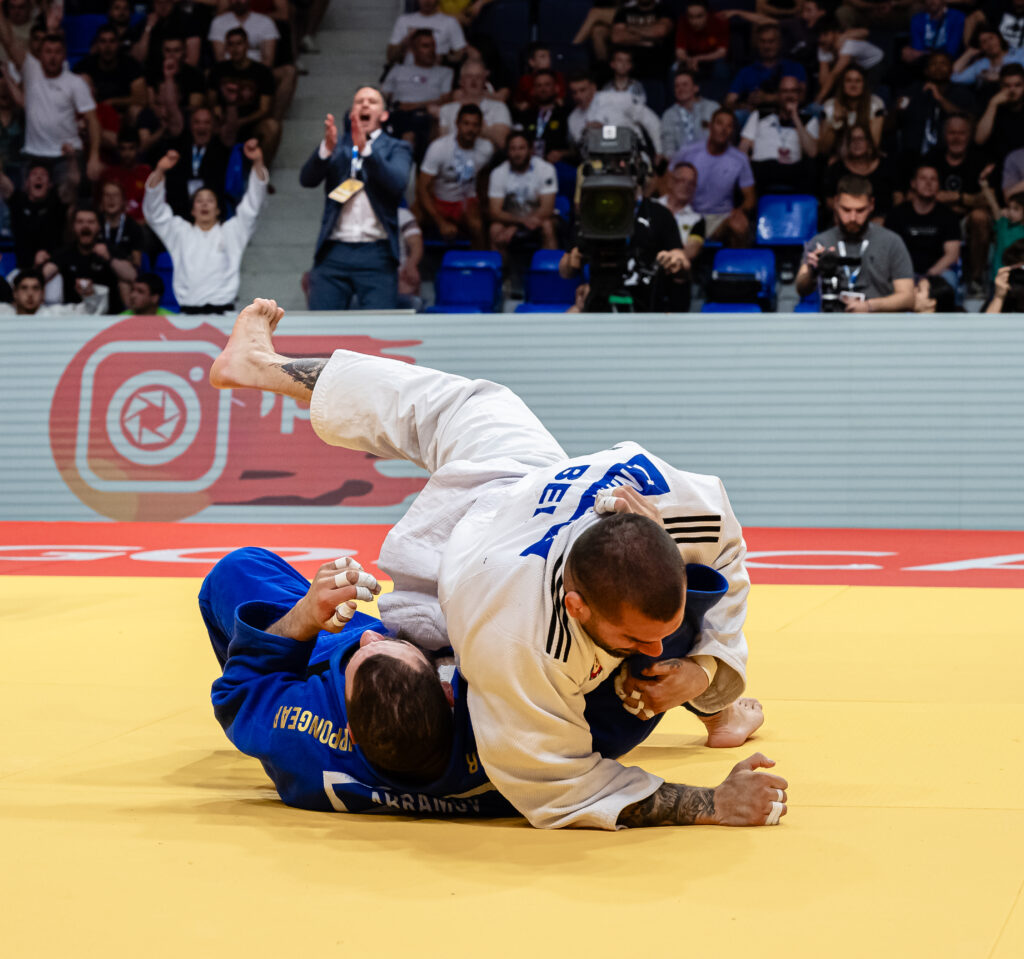
What’s interesting about your move up to the O100 kg category is that you immediately won a medal at the Paris Grand Slam in February 2025. Did three years and seventeen international appearances without a medal make you doubt yourself?
It was really hard because I often came fifth during that period. Throughout my entire career, I had almost never come fifth. Fifth place is the worst, it’s horrible, and every time I think about it, I think, damn! Then there was a period when that’s all I did. You start to question yourself. I’m approaching my thirty, thirty-one and I can really feel the difference compared to when I was twenty-eight or twenty-nine. I feel like it’s getting tough. I’m not making excuses for myself though. I needed to change things, especially in terms of training.
What do you mean?
There were areas of work that were very difficult for me. In training, for example, I was asked to fight without attacking. I had to control everything with kumi-kata, score at the end of the fight, and then manage it. I’m sorry, but that might work for Matthias Casse, but it’s just not my style of judo. As a result, I felt very limited, which created tension. This affected both my enjoyment of the sport and my results.
It’s true that, compared to when he was a metronome, Matthias now makes small mistakes that he didn’t make before.
His opponents are starting to get to know him well, and that’s normal. That’s what’s hard about judo and high-level sports in general: getting to the top is ‘easy’, in inverted commas. But staying at the top is complicated. Matthias has been at the top for a while now and I’m sure he will continue to perform well. However, we mustn’t underestimate how quickly the younger generations can replace us. Just look at Timur Arbuzov from Russia in the U81kg category…
Impressive, indeed.
The Russians have brought out schoolboys. They look like kids, but they’re killers. I’m happy for them, but it’s clear that we’re not competing on the same level. In terms of training, I can tell you it’s extremely tough.
About the Russians, at the last Grand Slam in Paris, you were the only competitor not to be defeated by ippon by Inal Tasoev, who beat you with a waza-ari in the semi-finals. I’m writing an article about him at the moment. What’s your impression of him on the tatami?
He’s both impressive and unimpressive. He doesn’t look very muscular, and after the first minute and a half he slows down physically. On the other hand though, he has skills that not many can match. A glance, a thrust of the hips, stability — in short, when it comes to feeling judo, he’s not bad at all. In Paris, he starts his kata from his knees. I block him the first time and think I can grab his belt and roll him over. But he readjusts and launches another attack within the attack, and this time it works. I get waza-ari, and that’s how it ends… I couldn’t express myself properly, probably because I was still a croquette weighing « only » 119 kilos.
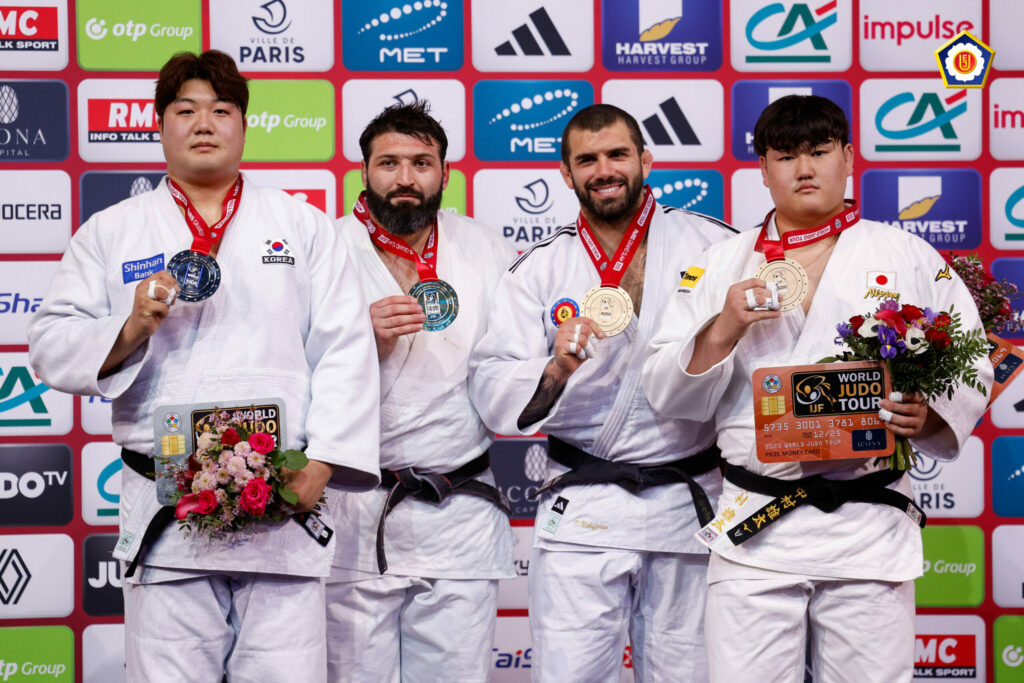
Now that Mark van der Ham has left, Dirk Van Tichelt has taken his place on the chair.
Yes, and Svilen Skerlev, the former coach of the Bulgarian U57kg Ivelina Ilieva, is involved too. I put them in touch, and they liked him. He has experience, which is what the Federation wanted. They could see that he is a good coach and does a good job.
There is a real bond between you and Dirk. This was evident again after your victory over France in the European Mixed Team Championships.
We were athletes together. That shared experience brings us closer — there’s no denying it. Above all, he’s a great person. He understands because he had a long career himself. He’s a really good guy. When you go into battle, you feel like you’re not alone. You feel he’s there with you and that he’s fully committed, and he passes that on to you. I think that’s really important.
You managed to put together a unified Belgian team for the 2025 European Championships. I’ve been thinking about the discussion we had in Azerbaijan in 2018, when the two Koreas presented a unified team. At the time, I spoke with Damiano Martinuzzi and Cédric Taymans from the French-speaking side and Mark and Robert Krawczyk from the Dutch-speaking side. I asked each of them when the Belgian team would be ready and they all said it wouldn’t be happening anytime soon. So what made it work this time? Is it down to the coaches’ personalities or the management?
I think it’s the coaches’ personalities. There’s a new spirit. Dirk is young. The leaders of the French-speaking federation are young, too. We also have young, talented athletes in every category, which helps. Anyway, I’ve seen lots of comments saying that the French lost because they didn’t field their A team. But even with your D team, you should have beaten us easily! But you were far too cocky; that’s why we beat you fair and square [he laughs]! We weren’t fielding our best team either. In the U57kg category, we had a young girl who wasn’t even qualified for the European individual Championships because the usual competitor was recovering from a cruciate ligament injury and wasn’t ready yet. OK, in the U70kg category we had Gabriella Willems, an Olympic medallist, but in the O70kg category we had a 20-year-old competing in her first European Championships. The same applied to the U73kg category: it was the young Chechen’s first European Championships. In the U90kg category, he’s twenty years old and it’s his first European Championships too. And then there’s me in the heavyweight category with Yves Ndao…
You know what? What you describe reminds me of something. In athletics, when the United States dominated world sprinting, the French stole the world record for a few months in 1990. Individually, they were far behind, but they worked hard on their handoffs. They practiced their baton changes. The Americans, for their part, assumed that, as they were faster individually, they just had to rely on their speed to pass the baton. But handoffs actually require work. Sometimes the runners collide, sometimes they’re not synchronized, sometimes the relay runner starts too early and has to brake, or too late and the other runner has to decelerate. The French capitalized on the fact that good collective handoffs can compensate for weaker individual credentials on paper. The big lesson was that a team is more than just the sum of its parts. This was evident in the Belgian team at these European Championships. This was evident even in the stands, where your teammate Yves Ndao’s reaction went viral.
Yes, Yves… He and I had a discussion afterwards.
Why?
Listen, I injured my fingers playing against the Netherlands. Then he overcame Italy. He beat Pirelli for three minutes and twenty seconds. Pirelli had two shidos; he didn’t get a single one. Then Yves changed guard, took a yuko and lost. Afterwards, we discussed the team lineup against the French. My fingers were getting worse and worse. On the other hand, Diaby is heavy. He weighs 165 kg, is strong and is right-handed. I might have found it a little easier if he were a left-hander, but he’s a right-hander here. I told Yves that if he was up for a fight, he should go for it. Then he starts saying that his shoulder hurts. That’s just between us though, not in front of the coaches. When the sheet is in front of the coaches, I suggest putting Yves against the French player. Yves really makes a face… I say, ‘Oh shit! No, don’t put Yves; put me. It’s fine.’ At the end, I won that, but you can see in the video that Yves is jumping around everywhere, so he probably could have fight too. These crossroads are also part of the top level. I mentioned it to him briefly afterwards. Not just at Yves, but at the youngsters too. There was the U73 in my room. When he woke up, he said to me: ‘I’m hurting everywhere; I’ve never had that before.’ I woke up: ‘But that’s not normal. You must be in pain like this all the time after every competition. If this is the first time you’ve felt like you’ve given it your all, it’s because you don’t give it your all in individual competitions. That’s why you’re going to get fifth and seventh places lots of times. Being in a team doesn’t mean you have to try harder than you would in an individual competition. It’s exactly the same. After any competition, you must feel exhausted. If you don’t give it your all, you won’t succeed.’
This observation goes beyond competitive sports.
Young people these days, not just in Belgium but everywhere, are so used to having everything handed to them on a plate. If they want information, they go online. Training is à la carte. Even the coaches have become nice guys.
This can sometimes be observed in clubs too. When the professor gives a break to get a drink of water, I see judokas — teenagers and adults alike — taking the opportunity to discreetly check their phones. Generally, when the coach notices afterwards, there’s no second chance.
I see this with my four-year-old daughter; it’s already a battle over the phone. TV isn’t good for her already, but then there’s the phone. She wears glasses and has to wear eye patches. She’s even had an operation. Why would she get caught up in that?
It’s true that you’re very family-oriented. Do your parents always come to watch you fight?
Of course. Besides, in Podgorica, when the refereeing body made the decision that cost us the team bronze medal against the Germans, it was better for them not to cross my mother’s path, I can tell you [he smiles]!
What a family [laughs]!
But I’m telling you, the aggressiveness within me comes from my mum. In Podgorica, if I don’t restrain her, she loses control. Don’t mess with her or my father.
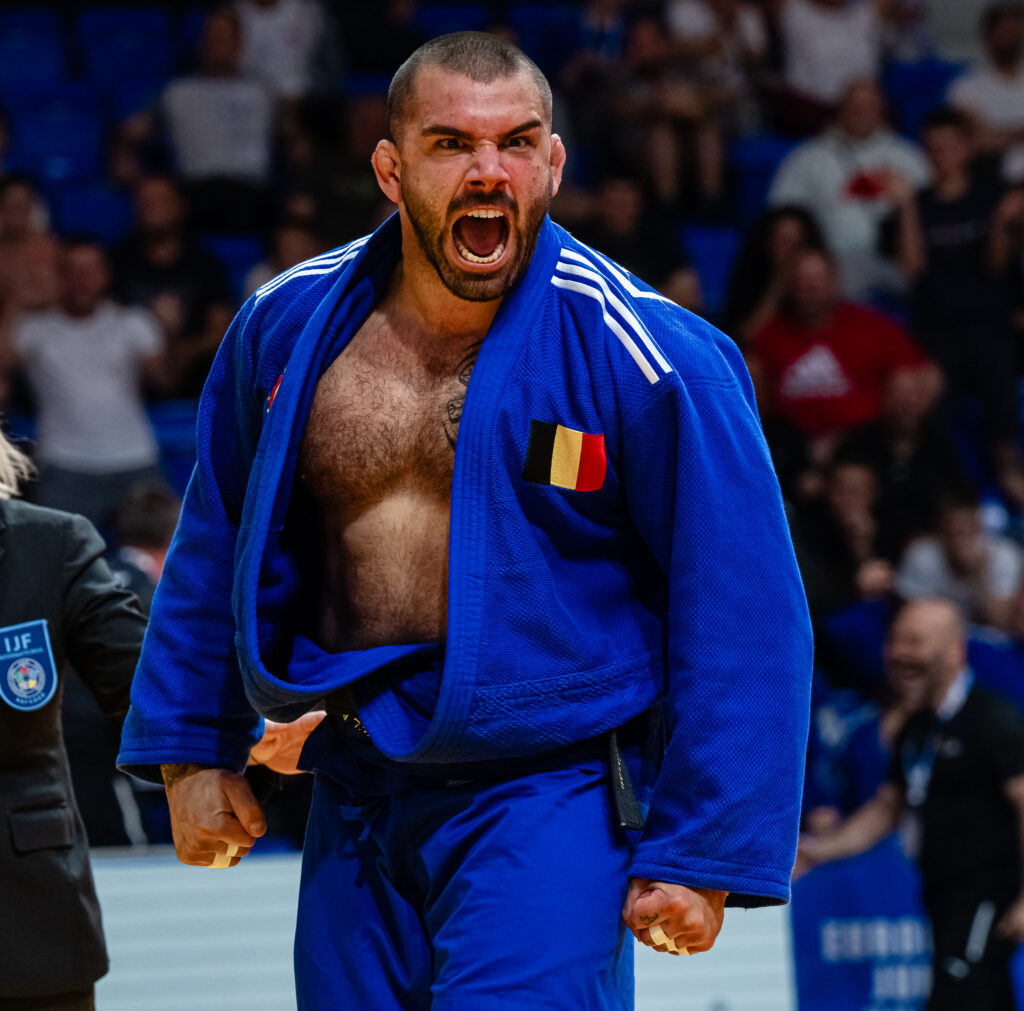
On the topic of family, how has the birth of your daughters in 2020 and 2024 changed things for you?
Everything. The question of organisation, for one thing, isn’t easy. At first, when the baby is young, it’s not a big deal. But now, I have no respect for people who have one child; it’s over.
What do you mean?
One child is like a holiday [he smiles]. Two children is like a war! At first, when they’re babies, they’re nothing. But later on, when they get older, you have to play with them and do everything with them. When I get home, I don’t do things by halves. I don’t even take her to school — we spend our days playing together. We do lots of things. I think my daughter has become a little machine for that. I really do everything a dad can do, but three or five times more, to compensate for being often away. So, while I’m here, I make sure I do everything I can to create good memories for her and to make sure she doesn’t miss me. It’s great. But it takes energy — there’s nothing you can do about that.
That gives you something in common with Loïc Pietri, who also has two daughters. Do you think you’ll stop at two?
My partner Karmen and I originally wanted four children, but now we’ve got two, we’ve decided that’s enough. I don’t want to be the guy who has kids and then regrets it because he can’t afford them. If one of them wants to go to university but can’t afford the first few years, let alone the third and fourth, I won’t be able to help. I’d rather have two. I’d rather ensure their future than have four children and then get into trouble.
And what about when you’re away from home, either on a training camp or competing?
When I’m abroad, I take a lot of naps. I’ve always told Karmen that I never want the kids to go to sleep without saying goodnight. There has to be a minimum, you know. Of course, we’re not going to spend our lives on our phones either. It’s good; it’s an added bonus, but mainly it’s just to say, ‘Hello, Dad’s very happy where he is.’ We don’t play it off as ‘I miss you’ or anything like that, because otherwise she’ll get the wrong idea about judo, sports and travelling abroad. I tell her, ‘Wherever Dad goes, he’s really happy. He’s doing something he loves. Of course I miss you and want to spend time with you, but right now Dad is happy too.’ When Dad comes home, we’re going to have a great time together and it’ll be judo who will cry’. You see, I say things like that to make it easier for her to accept. Now, from time to time — for example, this spring of 2025, when I was supposed to go to Kazakhstan, come back, go back to Spain, come back from Spain, go back to Berlin, and then go to the World Championships in Hungary — she says to me, ‘Why don’t you stay longer?’ or ‘Why are you always leaving?’ Don’t you love us? Don’t you like being here?’ and so on. All of that is also part of the life of a high-level athlete. It gives you extra strength compared to others who don’t have children.
From experience, it can also facilitate your transition to life after your competitive years are over. Are you planning for what comes next, by the way?
Yeah, listen. Here in Belgium, people realize that I have the ability to transcend them.
At the European Mixed Team Championships, it was striking to see your big brother status.
I’ve always preferred giving to others than keeping things for myself. I’ve been like that since I was young, and the teams certainly noticed it. I’ve always said that if there’s going to be a draw, it should fall on me. While some people find it stressful and unhealthy, for me that’s the opposite. I love the casino. I love roulette, but if I’m the chosen one, don’t worry — I’ll throw the person in front of me out of the room. That kind of thing excites me. Matthias is the same: we both really want it to fall on us. Even the coach of the French-speaking team told me, ‘You’re really made for this; you can’t stop.’ I’m supposed to stop after the World Championships in Budapest though. The surgery just accelerated things.
Wow… You just announced it to me like that, in the middle of a conversation!
Yes. That’s why it was so hard for me to decide to have surgery. I’d hoped to have it after the World Championships, but if I’d waited, there was a real risk that I’d lose the use of my finger because I couldn’t bend it anymore. That’s where you develop strength; that’s where it starts. It’s my right hand, the one that goes up to the collar. So I had to choose between skipping the surgery and competing in the World Championships, or having surgery. I chose to have surgery. Therefore, I had to write off the World Championships.
So you’re giving up on coming back afterwards?
Yes, it’s over, and that’s the problem. But I’ll announce it when the time comes.
Gee…
I did ask the surgeon if there’s any chance I’ll be able to go to the World Championships. He told me that I’ll be able to compete, but that I’m almost certain to need another operation. Worse still, it’s not a simple procedure. This time they’ll pull the tendon and reattach it.
So, are you looking ahead to what comes next? Can you see yourself as a coach?
Yes, I have offers in Bulgaria and Belgium. I think they realized when I told them I’d probably leave, and they said, ‘Oh, damn it…’ Initially, they said it wasn’t too serious, but then the director of the Flemish Federation outlined his expectations and requirements. Then the French-speaking people did the same and encouraged me to apply there. I did, so I have a backup application, even though I also have leads in Bulgaria. These are my two preferred countries and I love living there.
If you were to take stock of the highs and lows of your career, what would you remember? I was thinking back to the 2015 World Championships in Astana, when, despite your forearm cramps, you came back from hell to clinch your medal against Cyrille Maret.
Yes, of course, there’s that fight. A truly great moment. Then there’s my second European title in Lisbon in 2021. That came out of nowhere, since I wasn’t even supposed to go to the European Championships. This was partly because I had a serious ankle injury, and partly because I had closed an emergency exit on my thumb – so I didn’t have a thumb!… And then there’s the moment with the Belgian team now. Despite the defeat, it remains one of my best memories.
Did you have a big party afterwards?
We tried, but the others didn’t last [he laughs]… I also remember my victory at the 2022 Paris Grand Slam, as well as my podium finish at the Tokyo Grand Slam in 2017. In both cases, they were legendary tournaments for me. I feel like they’ve always existed. For Tokyo, it’s always just before the Christmas season. I usually just go for the training camp, but that year I also competed in the Grand Slam and won a medal.
And what about frustrations and regrets?
I have quite a few.
As far as I remember, not being able to compete in the 2022 European Championships in Sofia wasn’t easy.
Yes, it was tough. It was a huge disappointment, especially since I was the defending champion. The Olympics have to be among the other big disappointments. Three appearances and two wins is not good enough. You can also add my defeat in third place at the 2022 Jerusalem Masters against the Israeli Paltchik. I blamed the refereeing and the chaos that ensued. I also remember the final I lost in 2016 at the European Championships in Kazan against the Dutchman Grol, when I got new arm cramps and felt like I couldn’t defend my chances.
Another memorable moment was seeing you in tears of frustration on the podium after the 2017 World Championship final in Marrakech. You compete in the U100kg category and have beaten fighters from the O100kg category, such as the Georgian Matiashvili, the Japanese Kageura and the Russian Mikhaylin. You only lost to Teddy Riner in the final by waza-ari. Despite your performance, you pulled a face after the fight.
I was crying because when you’re in the final of a World or European Championship, you never know if you’ll ever have the opportunity to compete at that level again. So I gave it my all in every fight. When you reach the final, you know it’s your last fight of the day. I thought to myself, ‘OK, if I keep fighting like this, I could become world champion.’ The proof is that Teddy didn’t even beat me with an ippon. Considering our fifty-kilo weight difference, he should have killed me. So I wasn’t crying because I had lost. I was crying because I knew that whether it was Teddy or someone else, this chance might never come again – and it never did, at least not at this level.
As for Teddy, I would have loved to compete against him again now that I’m a proper O100kg.
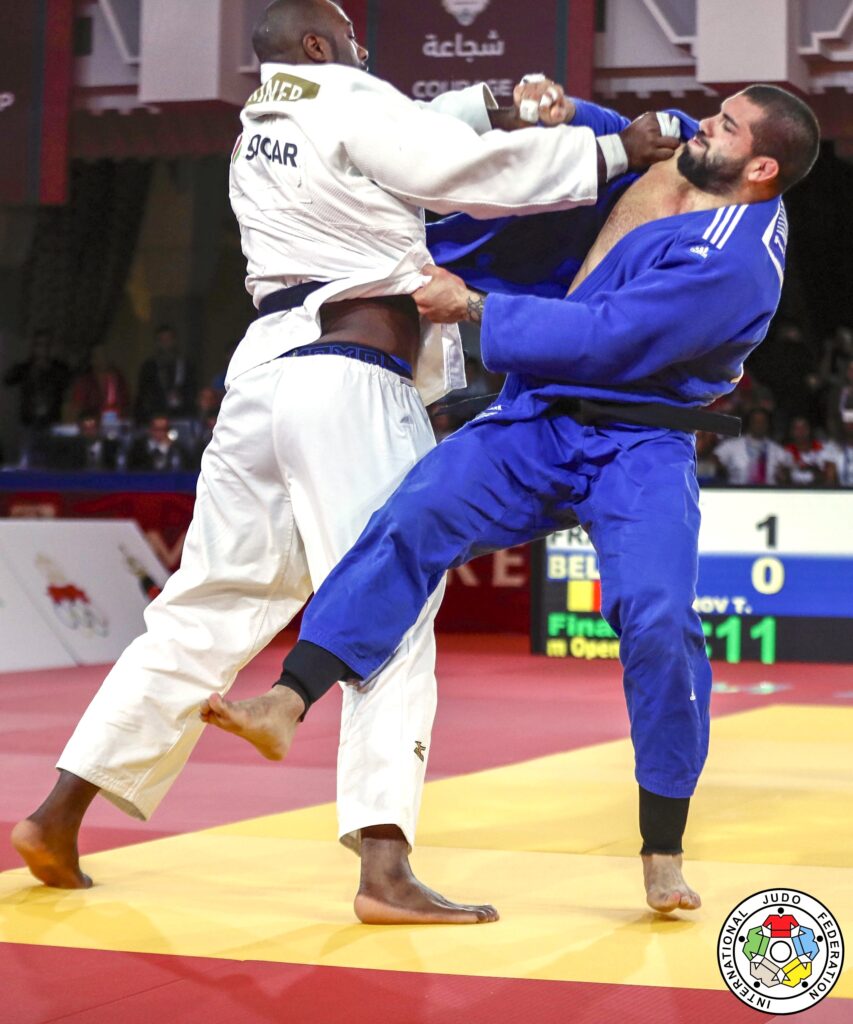
It’s been a few days since the press conference on 19 June 2025 where you officially announced your retirement from sport. Todo bien?
The press conference went well. I had a little trouble getting started, especially when it came to announcing my retirement. It was something I didn’t really want to admit or accept, and I admit I shed a few tears. I even noticed that some journalists were moved too. Afterwards, I received an enormous response on social media and on my phone. I’ve never had so many people message me about anything before, and 95% of the messages said « thank you ».
How are you dealing with it?
It’s great. As an athlete, it’s not really an objective to give people pleasure outside of judo, but people made me realize that I had a positive impact on them in terms of the show, the sport, and the way I interacted with the children and parents during my time at the club. All of this is extremely pleasing, especially since it was accompanied by quite a few widely shared videos on social networks.
Did you watch the World Championships, which took place the same week?
I went to watch Matthias in the U81 category and Zelemkhan Batchaev in the U73 category, and then I went home. I also watched the U100 and +100 kg categories, which I’ll call « my » categories. It was quite interesting. The refereeing was really difficult to understand, though. Sometimes, there were some very dubious yukos…
Do you know what’s next?
I received an offer from the French-speaking Belgian Federation to work with Pedro Guedes, a Brazilian coach who was recently hired and previously worked in Canada and Germany. They hired him as their head coach and want me to join him as their second coach. I’m happy because it will enable me to learn a lot. I know the system here, I have a good relationship with the athletes, and I can complement his experience well. Either way, I’ll still be working in the world of judo, which is what I wanted.
The apartment in Schaerbeek where you grew up is located right above your lifelong club. If the Toma of 2025 could give advice to the Toma who earned his first white belt at three-and-a-half years old, what would it be?
I’d tell him to give it his all. That’s what I’ve always done, sometimes even falling out with my parents in the process. The first time things got heated was with my father. That was at the European Championships in Budapest in 2013. I was twenty years old and I dislocated my shoulder. I was taken to hospital on a stretcher where they put my shoulder back in place. Then I went back to the hotel where I talked with Damiano and my father. My father said, ‘That’ll teach him. He won’t do it again.’ I looked at him and said, ‘If I have to do the same thing again tomorrow, I’ll put my arm back in place myself. I don’t want to take the ippon. » Then my father said to me: ‘Are you stupid or what? Not only did you take the ippon, but you’re going to need surgery too.’ I said: ‘Nothing at all. I’d rather do everything I can to avoid taking the ippon, even if it means getting injured. »
You’ve had surgery quite a few times, if I recall correctly.
With my recent finger surgery, it’s the tenth time I’ve been under the knife since the start of my career. I’ve injured myself all over, but I don’t regret anything. I have a much better track record than some people who’ve never had surgery. They’re intact, but often much more frustrated.
Doesn’t the fact that you weren’t a World champion or Olympic medallist leave you with any regrets?
A little, of course. But that has nothing to do with my operations… To answer your question: I really wouldn’t know what to say to a young Toma. Just go for it, have fun and stay a kid for as long as possible. Because if you take yourself too seriously too soon, you’ll end up like this [he mimes falling].
Are you worried about life afterwards?
In my interviews, I often say that we athletes have the best life. That’s why it’s so difficult when we stop, because we realize that other things are boring.
It’s a different life.
Yes, but you don’t travel as much. You’re not staying in fancy hotels and surrounded by people you like while practicing the sport you love and feeling great.
Today, you’re getting closer to the world of coaches. Do you chat with any of them?
Yes, some. They’re coaches I know. For example, Vladimir Preradovic, who coaches Barbara Matic from Croatia. I’ve known him since I was fifteen. You know, we first spoke just before the Paris Olympics. We’d never spoken before. He never said hello to me. Then one day I thought, ‘Oh, damn! We’ve never spoken,’ so I went to see him. He’s actually just a shy guy. We first met in Zagreb when I won the cadet tournament in… 2009. We’d never spoken before. But it turns out we had a lot to say to each other… Life’s funny, sometimes. – Interview by Anthony Diao, spring 2024 – summer 2025. Opening picture: © Paco Lozano/JudoAKD.
An French version of this interview is available here.
More articles in English:
- JudoAKD#001 – Loïc Pietri – Pardon His French
- JudoAKD#002 – Emmanuelle Payet – This Island Within Herself
- JudoAKD#003 – Laure-Cathy Valente – Lyon, Third Generation
- JudoAKD#004 – Back to Celje
- JudoAKD#005 – Kevin Cao – Where Silences Have the Floor
- JudoAKD#006 – Frédéric Lecanu – Voice on Way
- JudoAKD#008 – Annett Böhm – Life is Lives
- JudoAKD#009 – Abderahmane Diao – Infinity of Destinies
- JudoAKD#010 – Paco Lozano – Eye of the Fighters
- JudoAKD#011 – Hans Van Essen – Mister JudoInside
- JudoAKD#021 – Benjamin Axus – Still Standing
- JudoAKD#022 – Romain Valadier-Picard – The Fire Next Time
- JudoAKD#023 – Andreea Chitu – She Remembers
- JudoAKD#024 – Malin Wilson – Come. See. Conquer.
- JudoAKD#025 – Antoine Valois-Fortier – The Constant Gardener
- JudoAKD#026 – Amandine Buchard – Status and Liberty
- JudoAKD#027 – Norbert Littkopf (1944-2024), by Annett Boehm
- JudoAKD#028 – Raffaele Toniolo – Bardonecchia, with Family
- JudoAKD#029 – Riner, Krpalek, Tasoev – More than Three Men
- JudoAKD#030 – Christa Deguchi and Kyle Reyes – A Thin Red and White Line
- JudoAKD#031 – Jimmy Pedro – United State of Mind
- JudoAKD#032 – Christophe Massina – Twenty Years Later
- JudoAKD#033 – Teddy Riner/Valentin Houinato – Two Dojos, Two Moods
- JudoAKD#034 – Anne-Fatoumata M’Baïro – Of Time and a Lifetime
- JudoAKD#035 – Nigel Donohue – « Your Time is Your Greatest Asset »
- JudoAKD#036 – Ahcène Goudjil – In the Beginning was Teaching
- JudoAKD#038 – Catherine Beauchemin-Pinard – The Rank of Big Sister
- JudoAKD#039 – Vitalie Gligor – « La route prend celui qui marche »
- JudoAKD#040 – Joan-Benjamin Gaba and Inal Tasoev – Mindset Matters
- JudoAKD#041 – Pierre Neyra – About a Corner of France and Judo as It Is Taught There
- JudoAKD#042 – Theódoros Tselídis – Between Greater Caucasus and Aegean Sea
- JudoAKD#043 – Kim Polling – This Girl Was on Fire
- JudoAKD#044 – Kevin Cao (II) – In the Footsteps of Adrien Thevenet
- JudoAKD#045 – Nigel Donohue (II) – About the Hajime-Matte Model
- JudoAKD#046 – A History of Violence(s)
- JudoAKD#047 – Jigoro Kano Couldn’t Have Said It Better
- JudoAKD#048 – Lee Chang-soo/Chang Su Li (1967-2026), by Oon Yeoh
Also in English:
- JudoAKDReplay#001 – Pawel Nastula – The Leftover (2017)
- JudoAKDReplay#002 – Gévrise Emane – Turn Lead into Bronze (2020)
- JudoAKDReplay#003 – Lukas Krpalek – The Best Years of a Life (2019)
- JudoAKDReplay#004 – How Did Ezio Become Gamba? (2015)
- JudoAKDReplay#005 – What’s up… Dimitri Dragin? (2016)
- JudoAKDReplay#006 – Travis Stevens – « People forget about medals, only fighters remain » (2016)
- JudoAKDReplay#007 – Sit and Talk with Tina Trstenjak and Clarisse Agbégnénou (2017)
- JudoAKDReplay#008 – A Summer with Marti Malloy (2014)
- JudoAKDReplay#009 – Hasta Luego María Celia Laborde (2015)
- JudoAKDReplay#010 – What’s Up… Dex Elmont? (2017)
And also:
- JudoAKDRoadToLA2028#01 – Episode 1/13 – Summer 2025
- JudoAKDRoadToLA2028#02 – Episode 2/13 – Autumn 2025
JudoAKD – Instagram – X (Twitter).

